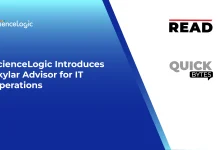ASKA A5 4-seater drive & fly eVTOL takes the lead as the world’s first flying car to advance with Type Certification, flight and driving testing in-progress.
ASKA A5 is the world’s first flying car to start the type certification process with the FAA. The Silicon Valley air mobility company’s prototype was awarded Certificate of Authorization (COA) and Special Airworthiness Certification by the FAA and has started flight testing. Since 2022 ASKA has performed successful ground testing and in Q1/2023 began conducting on-street driving tests. This Special Airworthiness Certificate signals that ASKA A5 has successfully met all FAA safety requirements.
ASKA is working closely with the FAA on type certification. Type certification signifies the design is in compliance with applicable airworthiness, noise, fuel venting, and exhaust emissions standards.
“We have achieved a series of technological milestones in the first quarter of 2023; debuting the first full-scale working prototype of the ASKA A5 in January at CES, successfully performing field and driving tests, and obtaining the COA and Special Airworthiness Certification for our pre-production prototype,” says Guy Kaplinsky, CEO/Cofounder. “The data we are harvesting from flight testing is enabling us to make progress towards our type certification. We already completed the initial phase and are progressing towards our next milestone, G1 status.”
G-1 basis is a critical milestone in the FAA cross-validation process, establishing airworthiness and environmental requirements necessary to achieve FAA Type Certification Validation.
Also Read: MCA Connect Wins Three Microsoft Partner Awards for Supply Chain and Automotive
The size of an SUV, the four-seater ASKA A5 is a drive & fly eVTOL that can travel by road and air. The vehicle is designed for the highest level of safety, a key factor that has enabled the company to make positive progress with the FAA toward type certification.
– Dual hybrid energy supply: ASKA is hybrid with batteries and a range extender engine that charges the batteries
in-flight. Uses premium gasoline available from today’s gas stations
– Large Aerodynamic wings, optimized for safe landing with ability to glide
– Six independent motor systems for flight
– Sufficient reserve flight time to meet FAA safety requirement
– Ballistic parachute
– 4 seater (1 pilot and 3 passengers)
– Capable of Vertical Takeoff and Landing (VTOL) from helipads and Short Takeoff and Landing (STOL) from runways
– Max flight range 250 miles
– Airspeed up to 150mph
“The airworthiness certification validates our efforts to develop a drive & fly eVTOL with an emphasis on safety,” explains Maki Kaplinsky, CoFounder/Chair & COO. “One of the significant advantages of a roadworthy eVTOL, like the ASKA A5, is that it does not require the modification or electrification of existing airports since it can maximize the use of today’s infrastructure, such as the many charging stations located around us. We are working with local airports in the Bay Area to test and confirm our concept of operations – they open the gate, ASKA A5 drives in as a car, drives/taxis to the helipad or runway, transforms into the flight mode and can take off.”
ASKA A5 is not only capable of vertical takeoff and landing (VTOL) from a helipad or vertiport, it can enter an airfield by driving through the airport gate, open the wings, taxi towards a helipad or runway, then take off. The vehicle can also perform an energy-efficient short takeoff from the runway using the in-wheel motors and thrust from the props.
ASKA A5 makes the maximum use of existing infrastructure, such as parking, charging stations, airfields, helipads and runways, for a seamless integration into city and suburban landscapes. The vehicle fits in standard parking spaces, it can be charged at home and EV charging stations, and the range extender engine runs on premium gasoline purchased at existing automotive gas stations.
SOURCE: PRNewswire




